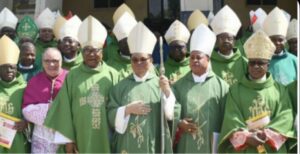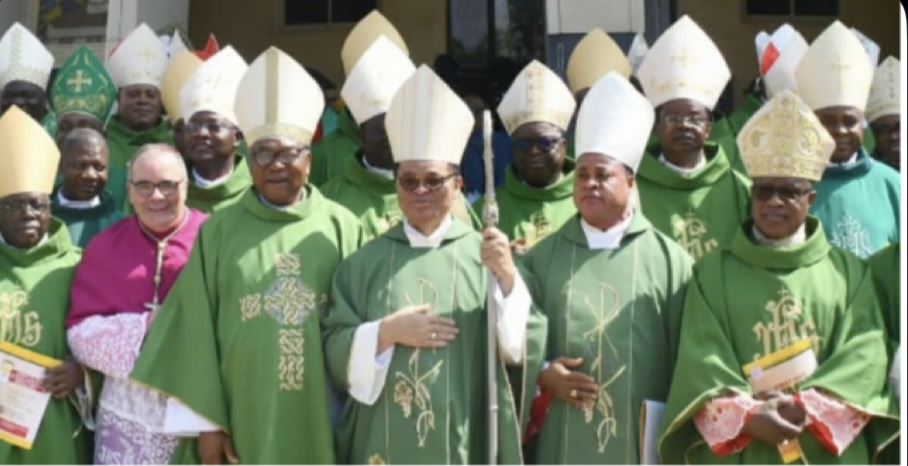The Catholic Bishops Conference of Nigeria have stated their stance on the recent pronouncement of the Pope on same-sex marriage, noting that it does not in any way change the Catholic Church’s teaching on marriage.
According to Tribune, the President of CBCN, Bishop Lucius Iwejuru Ugorji and the Secretary, Bishop Donatus Ogun, made their stance known in a statement.
The Bishops noted that the Declaration by the Pope seeks to explained the different forms of blessing that can be given to persons and objects in the Catholic Church, including the possibility of blessing persons in irregular unions.
They said this in response to the Fiducia Supplicans released by the Vatican which has created confusion among Christians and the Catholic faithful,
CBCN said such unions include but are not limited to divorced and remarried couples whose previous marriages had not been annulled, those living in same-sex unions, those in polygamous unions, in concubinage, etc.
The statement read, “The Declaration acknowledges and carefully distinguishes between ritual, liturgical, and informal blessings.
“While ritual or liturgical blessings are imparted according to the established norms of the Church, informal blessings refer to prayers over people who ask for them outside the liturgy or any formal celebration in the Church.
“The Declaration offers a consideration of the possibility of extending the informal blessing to all God’s children, irrespective of their moral condition, when they ask to be blessed.
“Nevertheless, the Declaration insists that the blessing of persons in irregular unions – and never the union itself – can only take a non-liturgical form to avoid confusion. It should not be imparted during or in connection with a civil wedding ceremony or with clothing, words, and signs associated with a wedding”, the statement said.
The Bishops said the Declaration affirms the Catholic Church’s perennial teaching on marriage as an “exclusive, stable and indissoluble union of a man and woman, naturally open to the generation of children” and emphatically states that the Church does not have the power to impart a blessing on irregular unions.
The statement added that the Declaration also reinforces the truth about God’s mercy.
“For one to willingly ask for a blessing demonstrates one’s trust in God and the desire to live according to God’s commandments. Asking for God’s
blessing is not dependent on how good one is. Imperfection is the reason for seeking God’s grace. Therefore, those in irregular unions are invited never to lose hope but rather to ask for God’s grace and mercy while remaining open to conversion.


